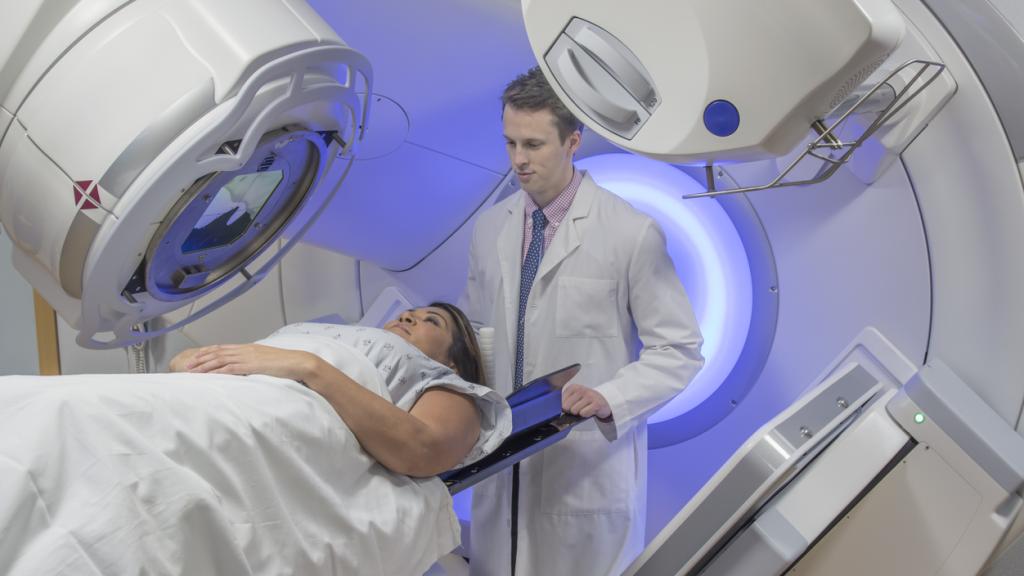Radiotherapy for metastatic breast cancer

Radiotherapy is a treatment that uses radioactivity to control cancer and relieve symptoms such as pain. Radiotherapy may help if your breast cancer has spread to your bone, skin, lymph nodes or parts of your brain.
If cancer has spread to your bones, the aim of radiotherapy is to improve your mobility, decrease pain and prevent any possible fractures or spinal cord compression. It should also make you feel more comfortable.
If the cancer has spread to other parts of your body, it can shrink the tumour and relieve pain or swelling.
External radiotherapy
Planning your treatment
Before radiotherapy is given, the radiation oncologist will plan how best to give your treatment. This means working out the dose of radiotherapy you need and exactly where you need it. A planning appointment can take anything between 15 minutes to 2 hours. You will have a scan to pinpoint the area to be treated and tiny tattoo dots will mark the treatment area.
How much radiotherapy will I need?
Usually you will only need a short course of radiotherapy. You may have a single dose or a dose divided into a few sessions. Externally beam radiotherapy won’t make you radioactive - it’s safe to be around people.
Will I get side-effects?
Radiotherapy is given directly to the site of the cancer. This means any side-effects tend to affect the area of the body being treated. Because metastatic breast cancer usually only needs a short course of radiotherapy most people have few side-effects. Possible side-effects include:
- Nausea: Radiotherapy to your stomach area or brain may make you feel sick. This can be prevented or relieved by taking anti-sickness drugs before your treatment. Your doctor will prescribe these for you.
- Fatigue: Extreme tiredness.
- Skin changes: You may get some redness of your skin on the treated area. But it is rare to have skin reactions. Ask the radiotherapy staff in your treatment centre for skin care advice and how to feel more comfortable.
- Hair loss: If you have treatment to your brain, you are likely to have hair loss to your head. The hair usually starts to grow back within 2 to 3 months of the treatment finishing. If hair loss happens in other parts of your body, it will only be on the treated area.
- Pain: Radiotherapy for metastatic bone cancer can cause a flare up of pain in the treatment area for a few days and you may need to take painkillers to help.
Talk to your medical team if you are troubled by any side-effects. You can also look at our coping with side-effects page for information and tips on these and other side-effects.
For more information
Phone
1800 200 700



